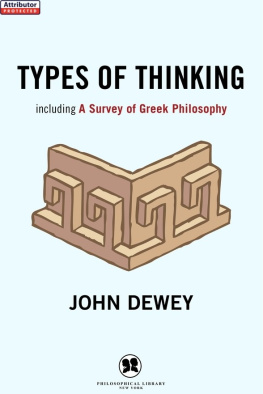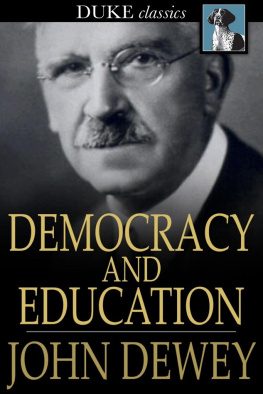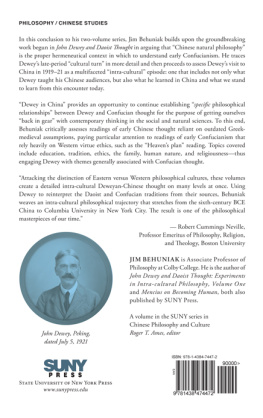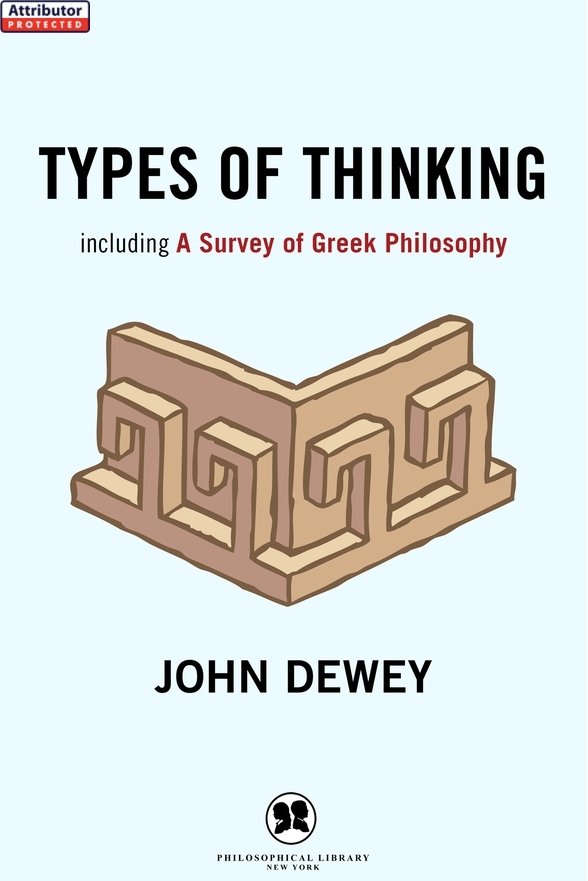John Dewey - Types of Thinking: Including A Survey of Greek Philosophy
Here you can read online John Dewey - Types of Thinking: Including A Survey of Greek Philosophy full text of the book (entire story) in english for free. Download pdf and epub, get meaning, cover and reviews about this ebook. year: 1984, publisher: Kensington Publishing Corp., genre: Science. Description of the work, (preface) as well as reviews are available. Best literature library LitArk.com created for fans of good reading and offers a wide selection of genres:
Romance novel
Science fiction
Adventure
Detective
Science
History
Home and family
Prose
Art
Politics
Computer
Non-fiction
Religion
Business
Children
Humor
Choose a favorite category and find really read worthwhile books. Enjoy immersion in the world of imagination, feel the emotions of the characters or learn something new for yourself, make an fascinating discovery.
- Book:Types of Thinking: Including A Survey of Greek Philosophy
- Author:
- Publisher:Kensington Publishing Corp.
- Genre:
- Year:1984
- Rating:3 / 5
- Favourites:Add to favourites
- Your mark:
Types of Thinking: Including A Survey of Greek Philosophy: summary, description and annotation
We offer to read an annotation, description, summary or preface (depends on what the author of the book "Types of Thinking: Including A Survey of Greek Philosophy" wrote himself). If you haven't found the necessary information about the book — write in the comments, we will try to find it.
The great 20th century philosopher delivered these lectures in China, which are available now to the public for the first time. The lectures show Dewey at the height of his powers, discussing and criticizing various schools of philosophyincluding his own experimental position. For the first time Deweys thinking crystallized into systematic form, thus the lectures are important not only philosophically but historically.
In A Survey of Greek Philosophy Dewey gives a brief but comprehensive account of Greek philosophy from prehistory through Aristotle.
Deweys original English notes were lost, but the material in this book has been edited and translated from Chinese newspapers of the 1920s by Professor Robert W. Clopton and Dr. Tsuin-Chen Ou. Samuel Meyer has provided a lucid and thorough introduction.
Not to be missed by anyone interested in the development of Deweys thought and of 20th century philosophy.
. . . the most complete presentation of Deweys theory of the development of philosophy, in prose simpler and clearer than he himself ever provided . . . Types of Thinking deserves a place in every subject collection.Library Journal
John Dewey: author's other books
Who wrote Types of Thinking: Including A Survey of Greek Philosophy? Find out the surname, the name of the author of the book and a list of all author's works by series.













